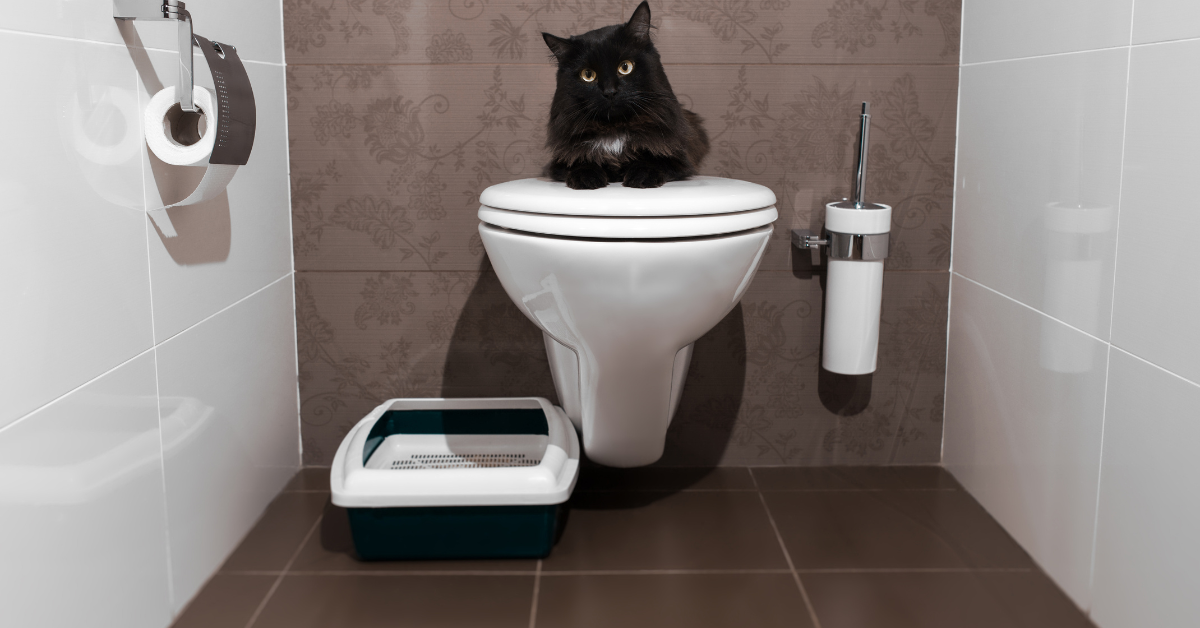Prevent Clogs and Damage: Never Flush Cat Poop Down Your Toilet - Expert Insights
Prevent Clogs and Damage: Never Flush Cat Poop Down Your Toilet - Expert Insights
Blog Article
The publisher is making a number of good pointers on Can You Flush Cat Poop Down The Toilet? in general in this article which follows.

Intro
As pet cat owners, it's necessary to bear in mind exactly how we deal with our feline good friends' waste. While it might appear hassle-free to purge pet cat poop down the commode, this technique can have detrimental consequences for both the atmosphere and human health.
Alternatives to Flushing
Fortunately, there are more secure and extra responsible methods to get rid of feline poop. Think about the adhering to choices:
1. Scoop and Dispose in Trash
The most usual technique of throwing away cat poop is to scoop it into an eco-friendly bag and throw it in the trash. Make certain to utilize a devoted litter scoop and deal with the waste without delay.
2. Use Biodegradable Litter
Go with naturally degradable pet cat litter made from materials such as corn or wheat. These clutters are environmentally friendly and can be safely disposed of in the garbage.
3. Hide in the Yard
If you have a yard, take into consideration burying feline waste in an assigned location far from veggie yards and water sources. Be sure to dig deep sufficient to prevent contamination of groundwater.
4. Mount a Pet Waste Disposal System
Invest in an animal garbage disposal system particularly created for feline waste. These systems utilize enzymes to break down the waste, minimizing odor and environmental influence.
Health and wellness Risks
In addition to environmental concerns, purging feline waste can likewise position health risks to human beings. Pet cat feces may consist of Toxoplasma gondii, a bloodsucker that can create toxoplasmosis-- a possibly severe ailment, especially for pregnant ladies and individuals with damaged immune systems.
Ecological Impact
Flushing pet cat poop introduces harmful microorganisms and bloodsuckers into the water supply, presenting a significant risk to water ecosystems. These pollutants can adversely affect aquatic life and concession water top quality.
Conclusion
Responsible animal ownership extends beyond offering food and shelter-- it also includes appropriate waste monitoring. By refraining from flushing cat poop down the commode and selecting alternate disposal methods, we can minimize our ecological footprint and protect human health.
Why You Should Never Flush Cat Poop Down the Toilet
A rose by any other name might smell as sweet, but not all poop is created equal. Toilets, and our sewage systems, are designed for human excrement, not animal waste. It might seem like it couldn’t hurt to toss cat feces into the loo, but it’s not a good idea to flush cat poop in the toilet.
First and foremost, assuming your cat uses a litter box, any waste is going to have litter on it. And even the smallest amount of litter can wreak havoc on plumbing.
Over time, small amounts build up, filling up your septic system. Most litter sold today is clumping; it is made from a type of clay that hardens when it gets wet. Ever tried to scrape old clumps from the bottom of a litter box? You know just how cement-hard it can get!
Now imagine just a small clump of that stuck in your pipes. A simple de-clogger like Drano isn’t going to cut it. And that means it’s going to cost you big time to fix it.
Parasitic Contamination
Believe it or not, your healthy kitty may be harboring a nasty parasite. Only cats excrete Toxoplasma in their feces. Yet it rarely causes serious health issues in the cats that are infected. Most people will be fine too if infected. Only pregnant women and people with compromised immune systems are at risk. (If you’ve ever heard how women who are expecting are excused from litter cleaning duty, Toxoplasma is why.)
But other animals may have a problem if infected with the parasite. And human water treatment systems aren’t designed to handle it. As a result, the systems don’t remove the parasite before discharging wastewater into local waterways. Fish, shellfish, and other marine life — otters in particular — are susceptible to toxoplasma. If exposed, most will end up with brain damage and many will die.
Depending on the species of fish, they may end up on someone’s fish hook and, ultimately on someone’s dinner plate. If that someone has a chronic illness, they’re at risk.
Skip the Toilet Training
We know there are folks out there who like to toilet train their cats. And we give them props, it takes a lot of work. But thanks to the toxoplasma, it’s not a good idea.

We were made aware of that report on How to Dispose of Cat Poop and Litter Without Plastic Bags from an acquaintance on another site. Enjoyed reading our write-up? Please share it. Help another person find it. I truly appreciate reading our article about Don’t flush cat feces down the toilet.
Book Appointment Now Report this page